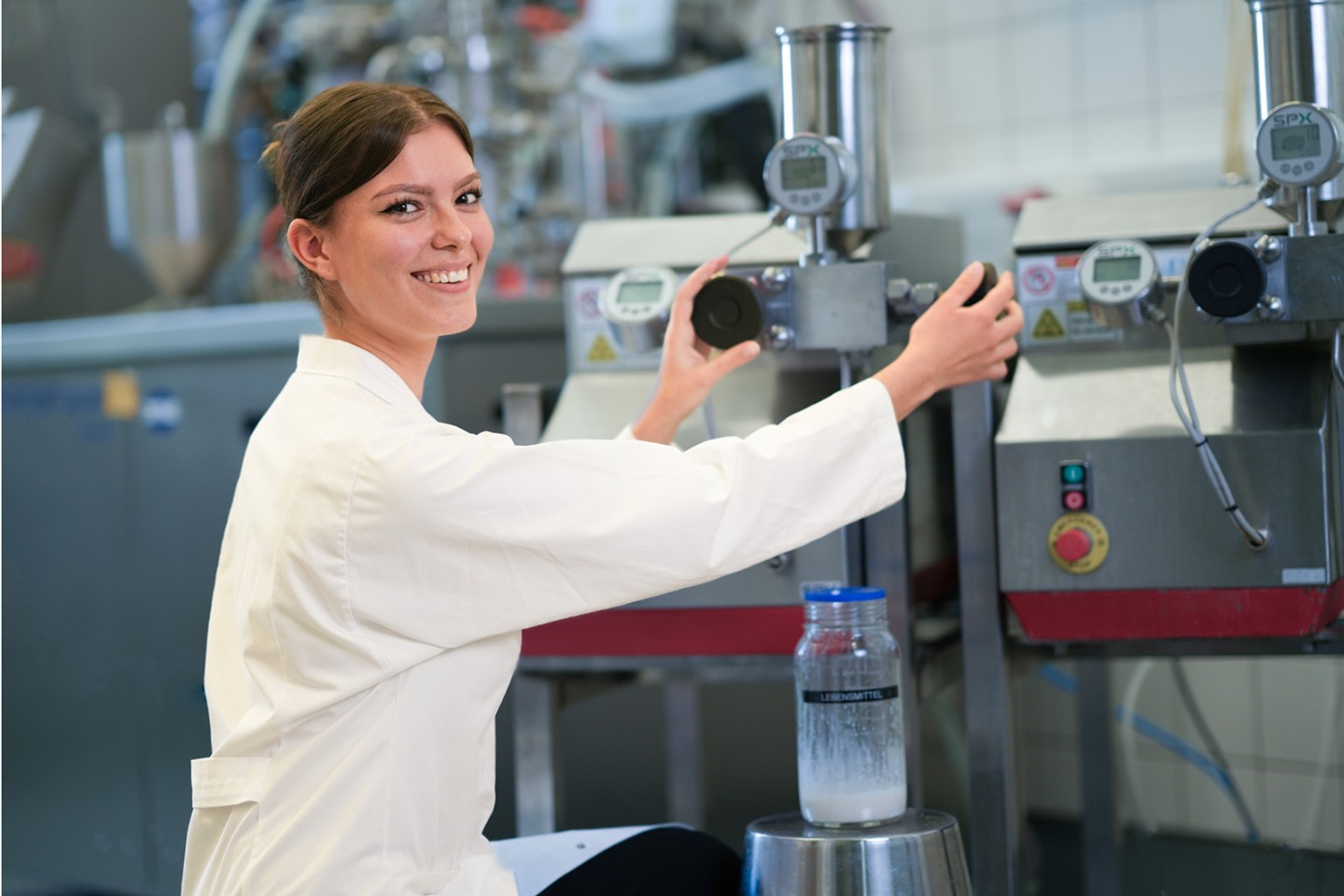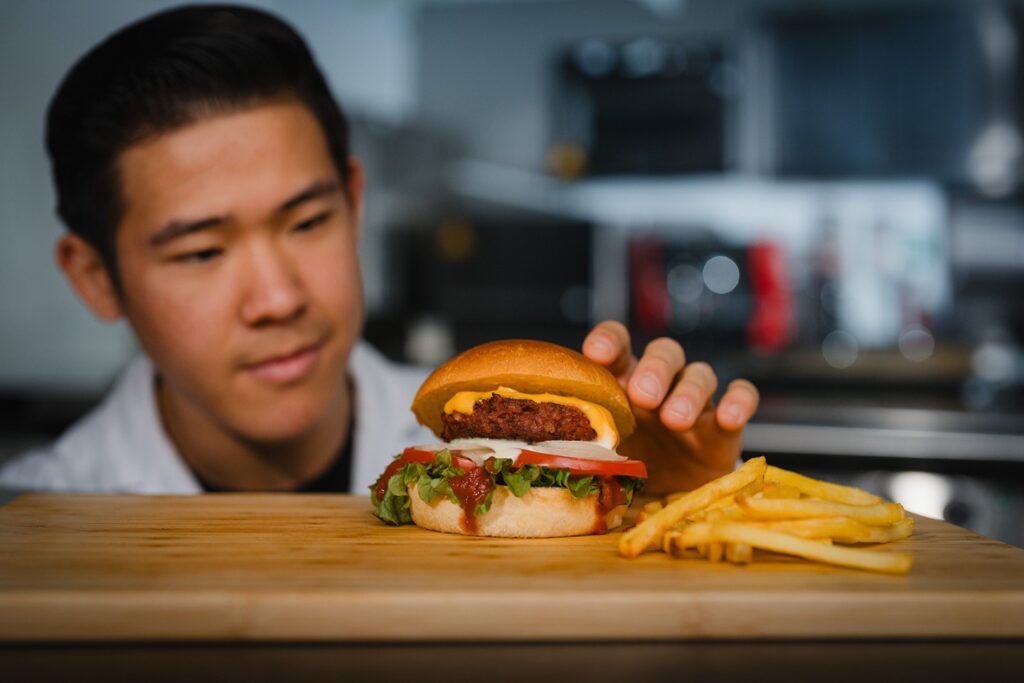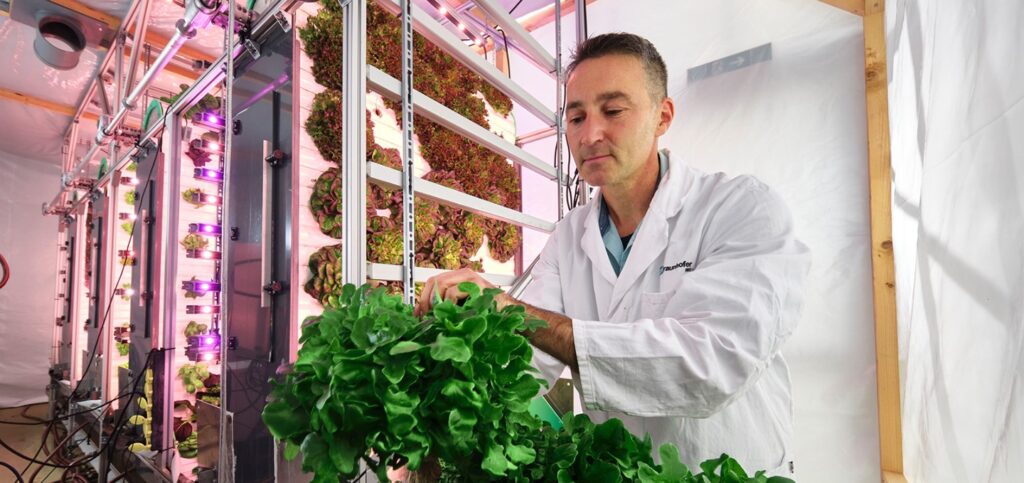Fraunhofe announces the launch of the FutureProteins flagship project, a collaborative effort between six Fraunhofer institutes to develop innovative systems for the sustainable, year-round production of alternative proteins. These systems, which are climate-independent and capable of producing proteins from plants, fungi, algae, and insects, aim to address the growing need for alternative protein sources as a substitute for meat, dairy, and other animal products. The project brings together the expertise of Fraunhofer IME, IVV, IGB, IOSB, IWU, and UMSICHT, combining cutting-edge technologies to ensure the environmentally responsible and efficient production of protein-rich foods.

Fraunhofer IVV expert during the development and testing of milk alternatives for one of the institute’s industry partners.
A key technology in the project is the OrbiPlant® system, a highly versatile vertical farming solution designed for optimal space-saving and efficient plant cultivation. Operating like a conveyor belt, this system enables continuous growth of plants in both upward and downward directions, reducing the need for pesticides and minimizing the use of water by 95% and fertilizers by 50%. Plants in the OrbiPlant® system are irrigated using aeroponics, a method where nutrient solutions are sprayed directly onto the plant roots, further conserving water resources.
The FutureProteins project goes beyond plant-based proteins. Researchers are also developing alternative proteins from fungi, algae, and insects, combining these ingredients to create a diverse range of food products. One notable product from the project is a vegan burger patty made from a blend of pea protein and

The vegan meat alternatives developed at Fraunhofer IVV combine different protein sources such as peas and mushrooms, resulting in particularly juicy burger patties with an improved nutritional profile.
fungal mycelium, which is not only juicy and nutritious but also requires fewer artificial additives compared to conventional meat substitutes. Other food products developed include gluten-free bread, desserts made from plant proteins, soft-serve ice cream, and baked goods filled with algae, all offering a sustainable and nutritionally valuable alternative to traditional foods.
Another major aspect of the project is its commitment to circular economy principles. Byproducts from the cultivation of one protein source are used to support the production of other proteins. For example, potato residue from starch production is used as a fermentation substrate for fungi, and nitrogen-rich waste from insect farming serves as natural fertilizer for plants. This integrated, sustainable approach reduces waste and maximizes resource use.
The researchers will present their findings and innovative prototypes at the IFFA trade show in Frankfurt from May 3 to 8, 2025, with plans to license their technologies and prototypes to industry partners. With a

The highly versatile Orbi-Plant® vertical farming system can grow plants of different species continuously and completely independent of weather, time of day and season
focus on sustainability, food security, and circular economy principles, the FutureProteins project is set to transform how the world produces and consumes protein-rich foods.
Institutes involved in FutureProteins:
- Fraunhofer Institute for Molecular Biology and Applied Ecology IME, Aachen (coordination)
- Fraunhofer Institute for Process Engineering and Packaging IVV, Freising and Dresden (coordination)
- Fraunhofer Institute for Interfacial Engineering and Biotechnology IGB, Stuttgart
- Fraunhofer Institute for Optronics, System Technologies and Image Exploitation IOSB, Karlsruhe
- Fraunhofer Institute for Machine Tools and Forming Technology IWU, Chemnitz
- Fraunhofer Institute for Environmental, Safety and Energy Technology UMSICHT, Oberhausen



